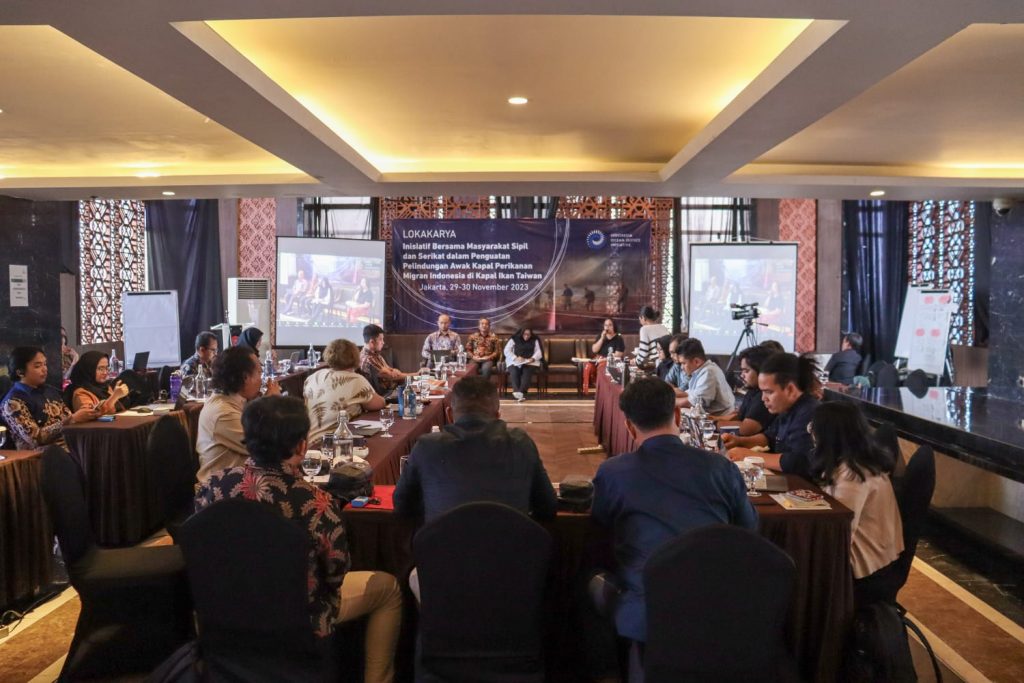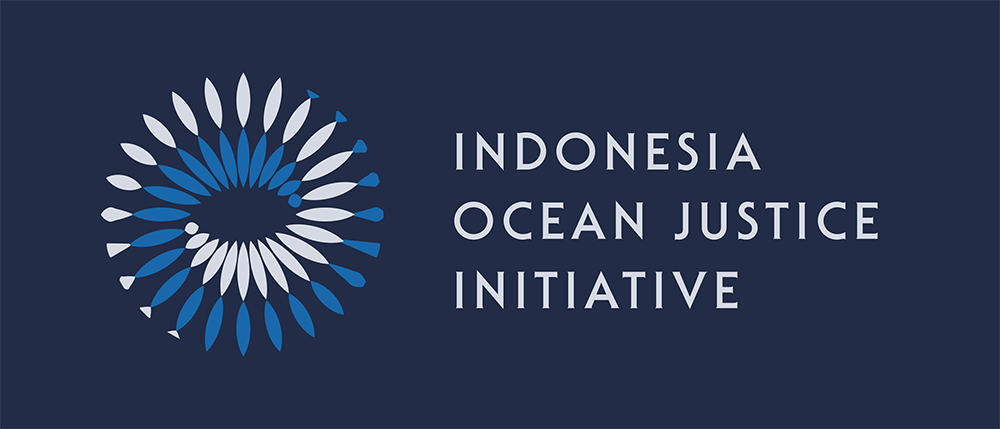Joint Civil Society and Union Initiative in Strengthening the Protection of Indonesian Migrant Fishing Vessel Crews on a Taiwanese Fishing Boat

JAKARTA – Taiwan’s capture fishing industry relies on migrant fishers (AKP) from Indonesia.
In 2022, the Taiwan Fisheries Agency (TFA) recorded as many as 14,308 Indonesian AKP working on Taiwanese fishing vessels operating outside Taiwan’s territorial waters.
In the same report, it was recorded that 8,529 Indonesian AKPs were working in the Taiwanese territory. The large number of AKP from Indonesia needs to be accompanied by efforts to provide protection and fulfillment of their labor and human rights on Taiwanese fishing vessels.
The governments of Indonesia and Taiwan have shown various commitments to protect migrant AKP. At the national level, the Indonesian Government issued Government Regulation Number 22 of 2022 concerning the Placement and Protection of Migrant Commercial Ship Crews and Migrant Fishing Vessel’s Crews as an implementation of Law Number 18 of 2017 concerning the Protection of Indonesian Migrant Workers.
As part of the advocacy group for the protection of AKP, the Indonesia Ocean Justice Initiative (IOJI) held a workshop entitled “Joint Initiative with Civil Societies and Unions to Strengthen the Protection of Indonesian Migrant Fishing Vessel Crew on Taiwanese Fishing Vessels.”
The workshop, which was held in Jakarta on 29-30 November 2023, brought together various elements of government, non-governmental organizations and trade unions who advocate for the protection of AKP.
“The perspectives of AKPs, labor unions and civil society groups in Indonesia will be developed into a jointly initiated position paper, which contains evidence-based policy recommendations regarding the placement and protection of AKPs on Taiwanese fishing vessels,” said the Chief Executive Officer IOJI, Mas Achmad Santosa.
Director of Protection and Placement of Indonesian Migrant Workers at the Ministry of Manpower, Rhendra Setiawan, explained the number of initiatives his institution has taken in protecting AKP. “Our steps include holding joint consultative meetings and collaborating with a number of non-governmental organizations and labor unions,” said Rhendra.
Meanwhile, Director for the Protection of Indonesian Citizens, Ministry of Foreign Affairs (Kemenlu) Judha Nugraha stated “we encourage this MoU to be processed immediately.” He added that the Kemenlu had held several consultations and meetings with Taiwan.” From the meeting, “Kemenlu assessed that Taiwan had a positive response.”
Meanwhile, various research results have shown that Indonesian AKPs are vulnerable to exploitation and even trafficking in persons (TIPs) on Taiwanese fishing vessels operating in the EEZ and high seas.
“IOJI found that the problem of protecting AKP is systemic, rooted in weak protection governance at the international and national levels. The dualism in placement permits does not only occur in Indonesia, but also Taiwan,” said IOJI researcher, Jeremia Humolong Prasetya.
SBMI Chairman, Hariyanto Suwarno said “we often talk about human rights (HAM) in the country. However, human rights seems to not be embedded in AKPs.”
According to Hariyanto, “we must build a perspective that human rights are universal and apply everywhere, including when there is an MoU [on protecting AKP].”
Concluding the introduction to the workshop, Lecturer in the International Relations Study Program at the University of Mataram, West Nusa Tenggara, Pamungkas Ayudaning Dewanto said “the Indonesian government can explore efforts to strengthen cooperation with Taiwan.”
These strengthening efforts include (1) monitoring the Collective Bargaining Agreement (CBA), (2) creating space for cooperation to determine normative matters such as handling cases related to salaries and (3) implementing sanctions mechanisms for the human rights violators.
Collaboration in Advocacy for the Protection of Indonesian Migrant AKP in Taiwan
The two-day workshop brought together a number of advocacy groups and labor unions to strengthen protections for AKP. Apart from IOJI as the organizer, 9 other organizations were also present.
Each of them was the Indonesian Migrant Workers Union (SBMI), the Indonesian Fisheries Workers Union (SPPI), Destructive Fishing Watch (DFW), the Seafarers Solidarity Association (PSP), the North Sulawesi Fisheries Ship Crew Union (SAKTI Sulut), the Indonesian Transportation Ship Crew Union.
Also present were representatives from the Indonesian Fisheries Workers Union (SBPI), Greenpeace Indonesia, Human Rights Working Group (HRWG), Indonesian Legal Aid Foundation (YLBHI), and Global Labor Justice – International Labor Rights Forum (GLJ-ILRF).
Responding to the importance of protection for AKP, Chairman of SBPI, Rahmatulloh hopes that “the government will be more responsive in taking care of our colleagues from Indonesia who work at sea and take action against perpetrators of TPPO.”
Recent Posts
- Hari Laut Sedunia Pentingnya Memitigasi Dampak Perubahan Iklim terhadap Masyarakat Pesisir Indonesia
- Deteksi dan Analisis Dugaan Praktik Penangkapan Ikan secara Ilegal di Wilayah Perairan dan Yurisdiksi Indonesia
- Monitoring, Evaluation, and Learning (MEL) Officer
- Penangkapan Kapal Run Zeng 03 dan Kejahatan Lintas Batas Negara Terorganisir dalam Sektor Perikanan Tangkap
- Historic New Coalition of Unions and Civil Society Organizations
